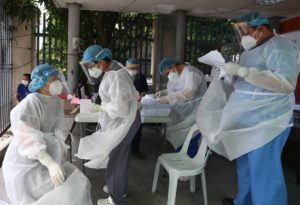Gokongwei-led Universal Robina Corp. (URC) is making the switch to cleaner renewable power sources for several of its factories across the country.
This was part of a broader goal to cut greenhouse gas (GHG) emissions that are contributing to global climate change and achieve its net zero target in 2050.
URC added that this would support the Philippines’ pledge to the Paris Agreement on climate change. The aim is to reduce the country’s GHG emission by 75 percent by 2030.URC, one of the country’s largest snacks and beverage manufacturers, said on Thursday it signed an agreement with MPower/Vantage, Bacman and First Gen Corp. to supply 20 of its factories with geothermal, solar and hydro energy.These include facilities in Pasig City, Laguna, Cavite, Pampanga, Antipolo and Bulacan, as well as facilities in Cebu and Negros Occidental. David Lim, URC chief sustainability officer, said the long-term goal was to “have all our plants utilize electricity from 100 percent renewable energy by 2025.”
“One of our focus areas is climate action. Under climate action, URC is gearing towards Net Zero by 2050. We aim for a low-carbon economy by optimizing the use of renewable energy among other tools to reduce the impact of GHG emissions,” he said. Earlier, it had installed solar panels that generate close to 2 megawatts at its manufacturing facilities in Canlubang, Laguna, and San Fernando, Pampanga.
Plans are also under way to install solar panels at the Calamba, Laguna; Misamis Oriental, Tarlac, Pampanga and Cebu plants, the company said.
The company is taking similar initiatives at its overseas factories.
In Thailand, URC installed solar panels in six factories and four warehouses at its compound in Samut Sakhon province, southwest of Bangkok. These can generate about 6 MW of power. URC Thailand began putting solar panels on its facilities in September 2019 under its “URGreen with Thailand’s Solar Panel Rooftop” project.
The company said its Vietnam subsidiary was also installing a 3 MW Solar rooftop system in its coffee plant located in the Vietnam Singapore Industrial Park Binh Duong.
The solar panels will cover 18,500 square meters of roof area and supply 21 percent of actual consumption of the plant. The panels also reduce building temperatures due to “thermal insulation.”


